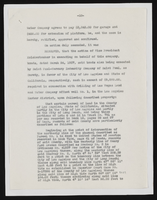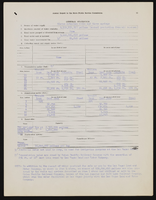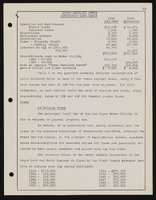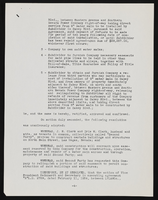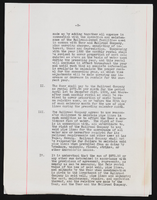Search the Special Collections and Archives Portal
Search Results

Letter from Walter R. Bracken (Las Vegas) to W. M. Jeffers (Omaha, Nebraska), May 31, 1941
Date
1941-05-31
Archival Collection
Description
Bracken expressing the desirability of a permanent watchman to prevent vandalism and sabotage of water facilities.
Text
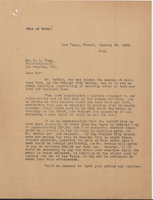
Letter from Walter R. Bracken (Las Vegas) to A. L. Coey (Los Angeles), January 28, 1933
Date
1933-01-28
Archival Collection
Description
Bracken providing details for a possible agreement to sell water to the Railroad Pass Casino and asking if Coey approves of the deal.
Text
Pagination
Refine my results
Content Type
Creator or Contributor
Subject
Archival Collection
Digital Project
Resource Type
Year
Material Type
Place
Language
Records Classification


